Greek mythology, with its vast array of gods, heroes, and epic tales, has been a cornerstone in shaping the cultural and literary fabric of the Western world. Its narratives, rich in symbolism and morality, have permeated various forms of art, literature, and philosophy, cementing its significance on a global scale. Central to this illustrious pantheon is Athena, the revered goddess of wisdom, courage, and strategic warfare. Standing distinctively among her divine counterparts, Athena’s multifaceted nature and her pivotal role in numerous mythological tales highlight her prominence and the deep respect she garnered in ancient Greece. Her legacy not only underscores the values and beliefs of a civilization long past but also offers enduring lessons and inspirations for contemporary society.
| Origin | Greek Mythology |
|---|---|
| Classification | Goddess |
| Family Members | Zeus (Father), Metis (Mother, in some accounts), No consort or offspring as she is a virgin goddess |
| Region | Greece |
| Associated with | Wisdom, Warfare, Strategy, Justice, Arts |
1. Historical Context and Origins
Veneration of Athena can trace its roots back to the Bronze Age, with the earliest records emerging from the Mycenaean civilization. During this era, inscriptions on Linear B tablets possibly referenced Athena, offering tantalizing clues about her ancient worship. The significance and depth of her adoration firmly established themselves in the Classical Greek period, as temples, festivals, and rituals celebrated her grandeur.
When juxtaposing Athena with deities from other mythological pantheons, similarities become apparent. For instance, the Roman goddess Minerva shares many attributes with Athena, especially in the realms of wisdom and war. Beyond the Greco-Roman connection, there’s also Neith, an ancient Egyptian deity associated with war and weaving, echoing some aspects of Athena’s diverse portfolio. Such comparisons not only illuminate shared archetypes in human spirituality but also suggest potential cultural exchanges and syncretism over the millennia.
Delving deeper into Athena’s evolution offers original insights. Over time, as city-states like Athens gained prominence, Athena’s role transformed from just a deity of war to also embodying wisdom and craft. Changing societal values and the influence of leading thinkers and political figures could have attributed to this shift. Moreover, as Greece interacted more with neighboring civilizations, they might have assimilated external cultural nuances, subtly shaping the character of Athena and the myths surrounding her.
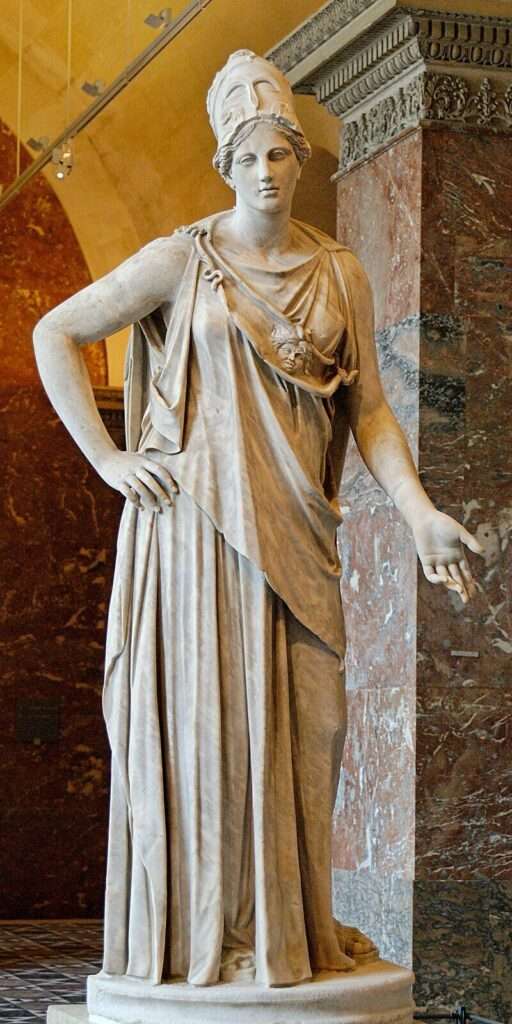
2. Athena’s Birth and Iconic Parthenon Story
The birth of Athena is one of the most iconic tales in Greek mythology, portraying a vivid picture of divine might and wonder. According to the legend, Zeus, the king of the gods, suffered a splitting headache after swallowing his pregnant consort, Metis. Seeking relief, he commanded Hephaestus, the god of fire and forge, to cleave open his head with an axe. From this astonishing act, Athena emerged, fully grown and armored, her appearance so radiant and formidable that it instilled awe in both gods and mortals. This narrative not only accentuates Athena’s unique genesis but also underscores her intrinsic attributes of wisdom and warfare, both of which were associated with her mother, Metis.
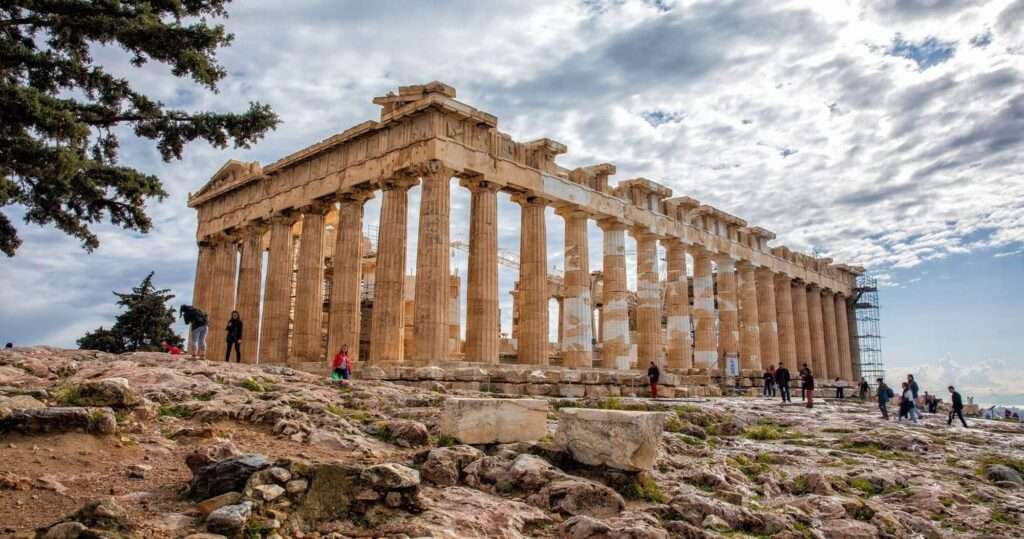
The Parthenon, an architectural marvel perched atop the Acropolis in Athens, stands as a testament to Athena’s esteemed position in the city’s cultural and religious life. Built in the 5th century BCE during the golden age of Pericles, the temple was dedicated to Athena Parthenos, meaning “Athena the Virgin”. Its intricate sculptures and friezes narrate various tales linked to the goddess, including her contest with Poseidon for the patronage of Athens. The centerpiece was a colossal chryselephantine statue of Athena, designed by the renowned sculptor Phidias, which showcased her in full glory, a symbol of the city’s wealth, power, and dedication to the goddess.
3. Athena’s Role and Attributes
Athena, with her diverse attributes, stands as a nuanced figure within the Greek pantheon. As the Goddess of Wisdom, she was revered as the embodiment of intellect and reason. The ancient Greeks looked to her for guidance in matters of knowledge, learning, and the arts. Her association with Warfare was not of brute force or chaos but of strategy and disciplined combat, underlining the importance of a tactical mind in winning battles. Athena’s representation as the goddess of Courage positioned her as an inspirational figure, motivating individuals to face adversities with resilience and valor. As the protector of Civilization, Athena guided the development of law, governance, and urban structures, emphasizing the value of a structured society and human accomplishments.
Athena’s title as “Parthenos”, or the Virgin, is deeply symbolic. In ancient Greek culture, they often associated virginity with autonomy, purity, and a form of power free from familial or marital ties. Athena’s status as a virgin reflects her independence and unyielding strength. Unlike other deities, romantic entanglements or biases did not sway Athena’s decisions and actions, making her stand as a beacon of impartiality and justice.
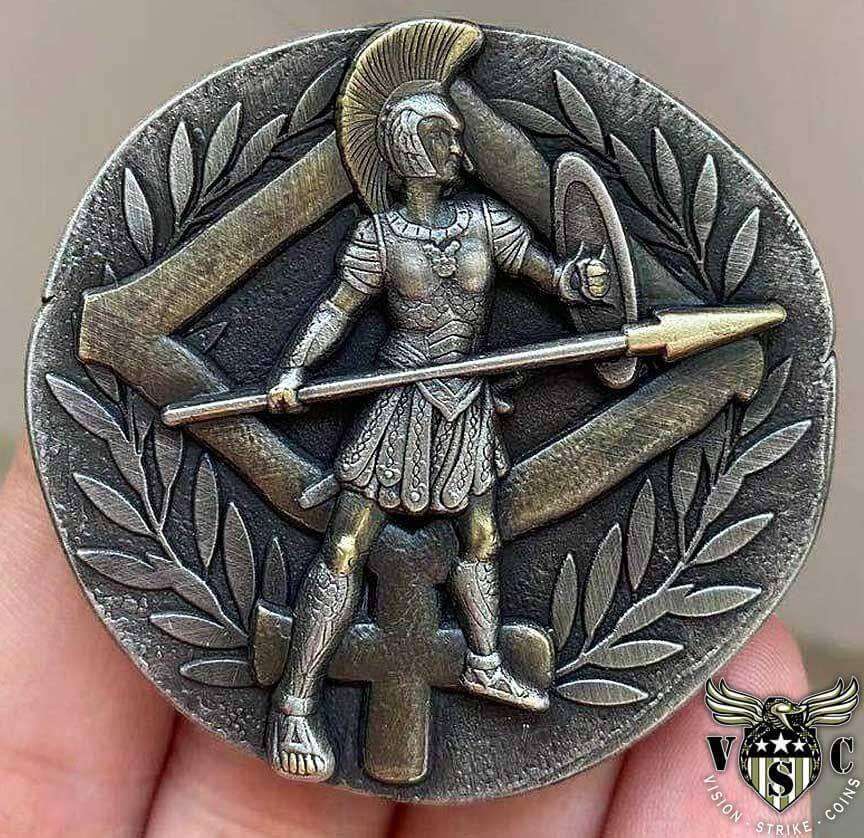
The bond between Athena and the city of Athens is profound. According to legend, Athena and Poseidon vied for the city’s patronage. While Poseidon gifted the city a saltwater spring, Athena presented an olive tree, symbolizing peace and prosperity. The Athenians, recognizing the long-term value of Athena’s gift, named the city in her honor. This tale not only underlines her association with Athens but also accentuates her wisdom in offering sustainable solutions.
4. Athena in Epic Tales
Greek epics are rife with tales of heroism, valor, and divine intervention, and Athena, with her varied attributes, plays pivotal roles in many of these narratives.
In Homer’s “Iliad,” Athena is a staunch ally of the Achaeans. She descends onto the battlefield, not only to inspire heroes but also to directly intervene at crucial junctures. For instance, when Achilles is filled with rage against Agamemnon and contemplates unsheathing his sword, it’s Athena who descends from Olympus, at the behest of Hera, to restrain him, thus altering the course of the epic. Her participation showcases her role as a guiding force, steering heroes towards paths of wisdom and strategy over reckless emotion.
The “Odyssey” further magnifies Athena’s protective and guiding nature, especially in her relationship with Odysseus. Recognizing his intelligence and resilience, she aids him multiple times throughout his perilous journey back to Ithaca. From advising him on escaping the Cyclops Polyphemus to assisting in his eventual return and the defeat of the suitors, Athena’s interventions are vital to the story’s progression. Her relationship with Odysseus exemplifies the bond between a protective deity and a favored mortal, who embodies the virtues she holds dear.
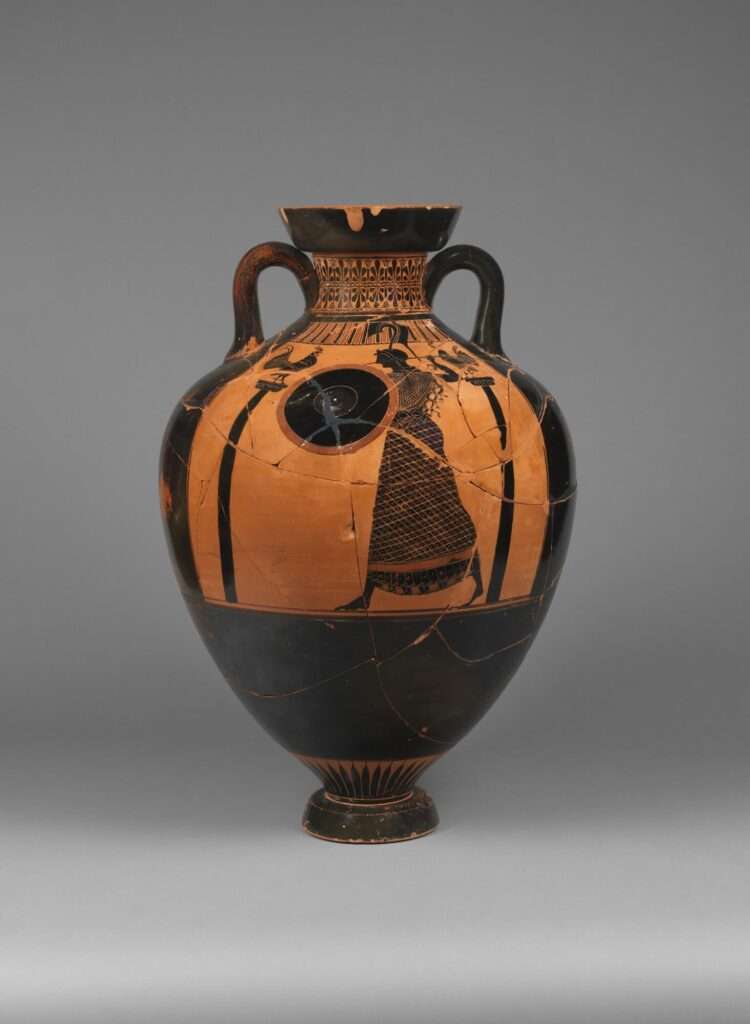
Another legendary hero who enjoyed Athena’s favor is Perseus. When tasked with the near-impossible feat of beheading Medusa, it is Athena who provides him with invaluable tools and guidance, like the reflective shield to safely approach the Gorgon.
5. Athena’s Symbolism and Influence in Modern Times
Athena’s legacy extends far beyond the ancient world, her symbols and ideals finding resonance even in our contemporary landscape.
Central to Athena’s identity are her iconic symbols. The owl, often perched on her shoulder, represents wisdom and knowledge. In many cultures, the owl is still seen as a beacon of insight and a harbinger of intelligence, a testament to Athena’s lasting influence. The Aegis shield, adorned with the head of Medusa, embodies protection and divine authority. It symbolizes not only defense but the power of deterrence, emphasizing the importance of strategy over brute force. Lastly, the olive tree, Athena’s gift to Athens, stands for peace, prosperity, and resilience. Even today, the olive branch is universally recognized as a symbol of peace and reconciliation.
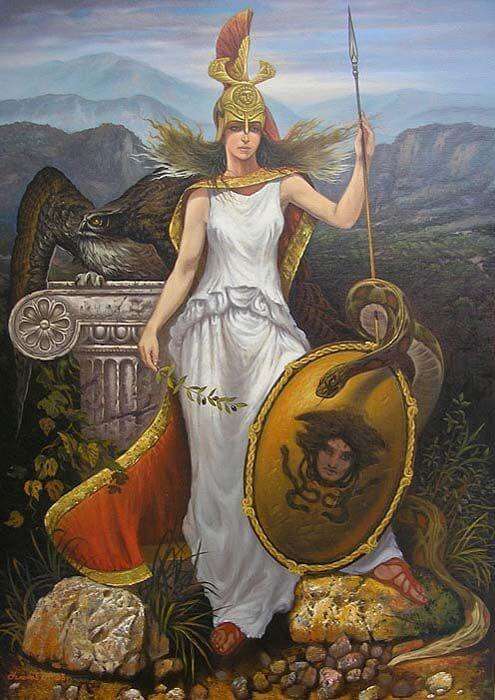
In the realm of modern decision-making, Athena’s attributes of wisdom and strategic thinking hold immense value. Whether in boardrooms devising business strategies or in personal scenarios requiring careful judgment, the principles Athena embodies are ever-relevant. Emphasizing critical thinking, foresight, and a balanced approach to challenges can lead to more informed and effective decisions. Drawing inspiration from Athena, one can navigate complexities with a blend of knowledge, patience, and tactical prowess.
Athena’s influence is palpable in contemporary art, literature, and pop culture. From literature that revisits Greek epics with a modern twist to movies and series that portray her divine character, her presence is unmistakable. Artists and writers, captivated by her multifaceted nature, continue to reinterpret and showcase Athena in various forms, making her an enduring symbol of strength, wisdom, and grace.
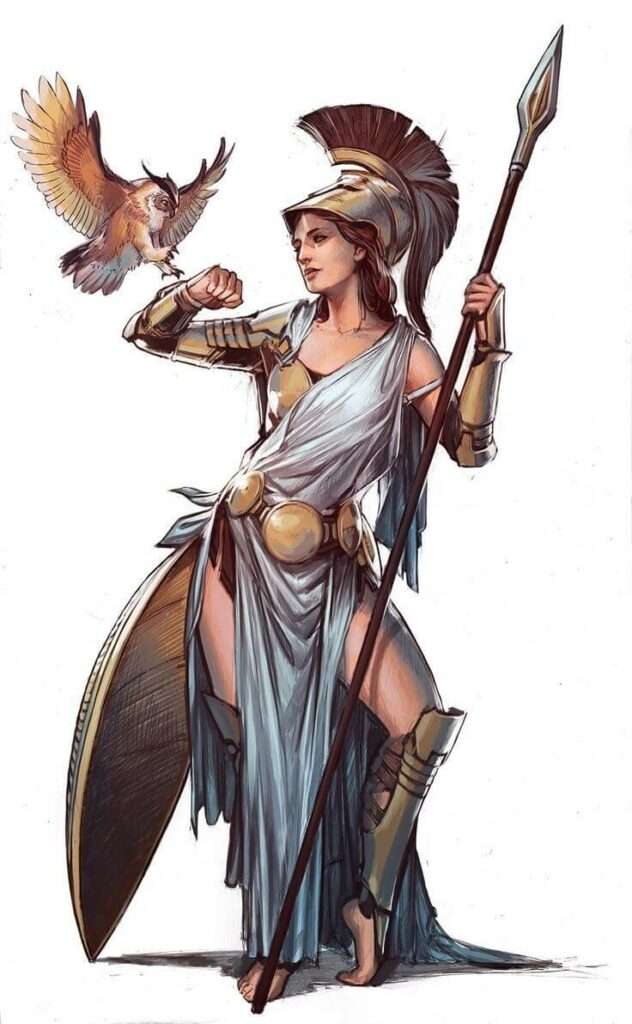
In essence, Athena’s symbolism and the values she represents are not confined to the tales of yore. They reverberate through time, finding relevance and resonance in our modern world, a testament to her timeless appeal and significance.
6. Conclusion
From the ancient cobbled streets of Athens to the bustling avenues of today’s global cities, Athena’s legacy remains undiminished. Her tales, symbols, and attributes, deeply embedded within Greek mythology, are more than just historical relics; they are resonant beacons that shine through millennia, casting light on timeless virtues. Athena, as the embodiment of wisdom, strategic thinking, and unwavering courage, offers insights that are as pertinent today as they were in the golden age of Greece.
Her multifaceted roles in epic tales, her guidance to legendary heroes, and her profound impact on art and culture reflect a deep-seated reverence for knowledge and strategy. These ideals, while rooted in mythology, have found their way into our modern ethos, proving the universality of the lessons she imparts.
For those captivated by Athena’s tale, the expansive realm of Greek mythology beckons. Each story, each deity, and each hero holds lessons, inspirations, and tales of valor that can enrich our understanding of the world and ourselves. As we navigate the complexities of modern life, drawing inspiration from Athena’s attributes can guide us towards informed decisions, resilience, and a deeper appreciation of the tapestry of history and mythology that shapes our world.
In the words of the ancients, may Athena’s wisdom guide us, her shield protect us, and her legacy inspire us to strive for greatness in all our endeavors.
With this, we conclude our exploration of Athena. May your journey through the annals of mythology be as enlightening as it is enchanting.
